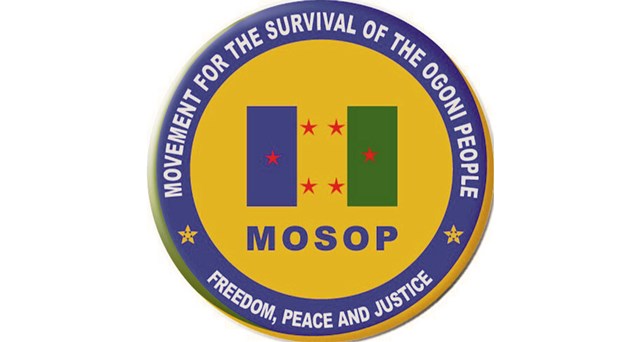Maritime
Ratification Of MLC 2006 ‘ll Ensure Seafarers Right -NIMASA DG
The Director General of the
Nigerian Maritime Administration and Safety Agency (NIMASA), Mr Ziakede Patrick Akpobolokemi has noted that the ratification of the Maritime Labour Convention (MLC) 2006 in Nigeria is a demonstration of the country’s commitment towards ensuring seafarers rights in terms of their living and working condition in a decent environment.
Akpobolokemi, who was represented by Barr. Callistus Obi, made this assertion at a special session with Shipowners, Seafarer Employers, Manning Agents and Seafarers on Maritime Labour Convention MLC 2006, organised by NIMASA at Hotel Presidential, Port Harcourt last Friday.
He said the MLC 2006, dubbed, “The Bill of Rights for Seafarers” is an opportunity for shipowners, Seafarer employers, Maning Agents and Seafarers to get acquainted with their rights and obligations under the convention.
According to him, the convention which is also referred to as the 4th pillar of International Maritime Standards (IMS) after IMO Conventions, and pleased to boldly say that Nigeria has been ratified.
“The bold initiative of ratifying this convention presents several benefits to Nigeria, especially in the areas of technical co-operation with other International Labour Organisation (ILO) member states and technical support and training from ILO itself, which has resulted in the training of over 25 NIMASA Labour Inspectors,” he said, adding that a detailed action plan has been put in place preparatory to the entry into force of the convention in Nigeria come June 18, 2014, in Lagos.
The NIMASA boss noted that the objective is to ensure compliance and enforcement so as to achieve effective implementation at both flag state and port state control levels, stressing that it is an updated convention which creates a single instrument encompassing over 68 existing conventions and recommendations on seafarers. He said Nigeria as the 5th state in Africa to have ratified the convention is a landmark achievement for the country and indeed NIMASA through the current management, and called on all stakeholders to facilitate the achievement of the lofty objective. Akpobolokemi said the achievement is a further testimony of President Goodluck Jonathan’s transformation drive, which would further provide recognition for Nigeria by both ILO and IMO as a complement state with the attendant promotion of International Labour Standards. In her paper presentation, the Director, Maritime Labour Services Department, Mrs Juliana Abiodun Gunwa heighted the structure of implementation of the MLC 2006, responsibilities and obligations of shipowners, manning agents and seafarers.
Mrs Gunwa, who was represented by Mrs Ego Nwokocha, however, said although the convention does not directly bind shipowners, but that governments are bound to regulate ship owners to ensure that the laid down responsibilities and obligations were met by all parties. Stakeholders from all walks of life attended the session and interacted on issues concerning the operations.
Maritime
Waterways Safety: NIWA Wants Partnership With Govs

The Managing Director of National Inland Waterways Authority (NIWA), Mr. Bola Oyebamiji, has called for increased collaboration between the federal agency and state governments to enhance the safety and security of inland waterways transportation.
Speaking at a one-day consultative forum on safety and insecurities on inland waterways, organized by the Nigeria Transportation Commissioners’ Forum in Ilorin, Oyebamiji emphasized the critical role that safety and security play in fostering a thriving water transportation system.
The forum, themed “Prevalent Safety, Security Hazards and Practices in Inland Waterways: Passenger Transport Safety in Ilorin, Kwara State”, sought to address the pressing issues facing the inland waterways sector.
Oyebamiji acknowledged the ongoing efforts by NIWA to improve safety, such as the recent unveiling of the transportation code for public use, the inauguration of several operational assets including survey boats, gunboats, water ambulances, and a passenger ferry.
He also noted that safety campaigns have been launched across all operational bases, targeting local communities in their native languages.
The NIWA boss stated the support from the National Assembly, including the ongoing discussions on establishing coastal guards and the attention safety and security on inland waterways have received from the House Committee on Inland Waterways.
In his closing remarks, Oyebamiji appealed to the Commissioners for Transportation across relevant states to collaborate with NIWA in areas such as training, safety campaigns, infrastructure development, and financial empowerment.
He stressed that while the challenges are significant, they are surmountable through collective action.
Maritime
Coastal Guard Bill’ll Unlock Marine Blue Economy Potential -FG

The Federal Government has conveyed its support for the establishment of the National Coast Guard.
The Government also commended the proponents of the bill for having the hindsight to initiate a course of action that, when passed, will be the catalyst needed in unlocking the nation’s maritime potential.
In a statement by the Head of Press, and Public Relations for the ministry, Muhammad Tahir Zakari, Minister of Marine and Blue Economy, Adegboyega Oyetola, was reported to have made this known at the National Assembly complex at the 1-Day Public Hearing on National Coast Guard Bill (NCG).
The statement stated that the bill when passed, will guarantee maritime safety, sustainable marine resource development and enhance economic growth.
Highlighting the major need for the National Coast Guard, the Minister identified: Maritime safety; Environmental protection through enforcing environmental regulations and conservation of marine ecosystems; and Enforcement of civil maritime laws to uphold laws governing civil maritime activities and enforce fishing regulations while preventing illegal exploitation.
It also include search and rescue to maritime emergencies and also conduct timely search and rescue operations.
He cited a 2009 publication by the African Centre for Strategic Studies, which noted that 15 of the 21 independent maritime nations in sub-Saharan Africa have dedicated coast guards and identify themselves as such.
Despite this, none of these nations have Nigeria’s population or the extent of its inland waterways and coastline.
While acknowledging the significant role of the Nigerian Navy in safeguarding the Nigerian maritime space following the collaborative effort with the Ministry of Marine and Blue Economy in the Deep Blue Project, which has shown great results with zero piracy in Nigeria’s territorial water in the last three years.
He, however, stressed the need for the National Coast Guard to complement the efforts of the Nigerian Navy in playing a critical role in preventing accidents, crime, and other threats to maritime activities
“A vast coastline of 850 km, the equivalent of 10,000 km in two ways. It is also a place of rich and diverse economic sources.
“While these opportunities are promising, they also present challenges such as pollution, overfishing, and unsustainable use of marine resources. The proposed National Coast Guard is equipped to tackle these issues”, he stated.
He urged the Senate and the National Assembly to lend their full support to the bill, noting that, “Nigeria Coast Guard will act as a vital complement to the Navy, of fostering a safe and sustainable maritime environment”.
He appealed for the establishment of a flexible, adaptive implementation strategy that would evolve into a midwife for the bill to succeed, while urging those with reservations to see the pressing need of the institution.
Earlier during the hearing, the President of the Nigerian Senate, Godswill Akpabio, commended members of the Committee on Marine and Transport for their unwavering dedication in piloting the initiative and advocating for the establishment of the National Coast Guard Bill.
Akpabio, represented by Sen. Akintunde Yunus, said the essence of the bill was to make critical decisions that will guarantee the safety of the nation’s waterways and protect the marine resources.
He stated that “the establishment of the National Coast Guard is not merely a legislative formality, but a dire necessity”.
Speaking also, the Chairman, Senate Committee on Marine and Transport, Sen. Sanni Eshinlokun, said the Bill was first read in the Senate on the 3rd of October while the Senate at its plenary deliberated on the General Principles of the Bill.
Senator Eshinlokun said, “The Bill was read for the second time and referred to the Senate Committee on Marine Transport for further legislative action.
Maritime
Private Sector Should Drive Blue Economy -Bello

Former Executive Secretary of the Nigerian Shippers’ Council (NSC), Barr. Hassan Bello, has charged the Federal Government not to designate any of its agencies as the lead agency to drive the blue economy if it actually wants Nigeria to make progress in the sector.
Bello, who made this call in his remarks at the 10th anniversary, lecture and awards of the Primetime Reporters in Lagos, midweek, advised the Federal Government to avoid the mistake made during the Cabotage era when it designated an agency as lead agency and the rest was now history.
He said for the sector to succeed, it required everyone’s contribution, urging the Minister to allow the private sector to drive the blue economy.
According to him, “Two things which we must be very careful about is to make.mistake, like we did with cabotage. If we remember carefully, Cabotage was coastal and Inland shipping, but that inland shipping was not emphasized.
“It was just for supply of oil and gas to the mother vessel, we couldn’t trade as we were doing from Asaba to Baro in Niger State, or carry cement or even petroleum products. So, we cannot restrict that to customs.
“Secondly, don’t give the Blue Economy to an agency to say it is the lead agency because everybody must have contributions to the Blue Economy. As we want to do, we have seen agencies struggling to have seminars on Blue Economy, it’s not even a government thing.
“Allow the private sector to take over this blue economy, don’t create fantastic departments and overload into the private sector. This is what is our problem.
“When we had the Cabotage, it was a NIMASA thing and when you talk about Cabotage, no! don’t go there, what is your own with Cabotage? So, Cabotage was colonized, the Blue Economy should not be colonized. We should have the ramification of that Blue Economy to make sure that everything trickles down”.
He however, noted that there had been a lot of progress by the various organs of government even before the designation of the Blue Economy Ministry saying, “Blue Economy has always been there just as we had the red economy, which is characterized by China’s quest for export for state directed economy.
“We even have the grey economy, which is that which is informal. We have the green economy and all shades of economy. So, it’s not new that we have the Blue Economy, what has been the call by stakeholders is for us to have a ministry that will cater for transportation and transportation is a cardinal or even the paramount part of the Blue Economy.
“I know we have sustainable use of ocean resources and many other things, but when you talk about the Blue Economy, the central point is the use of ocean and the inland waterways and other resources for diversification of our economy as the Convener has said”.
“We have to be conscious, concerted and even calculated to make sure that it works for us. It’s not just fancy thing that there’s a ministry for blue economy. There must be active participation of stakeholders and the involvement of the private sector to harness the resources and not anything fancy or pretentious. The government must involve the private sector.
By: Stories by Nkpemenyie Mcdominic, Lagos
-
Niger Delta1 day ago
Association Boss Hails FG Over Pipeline Surveillance
-
Business1 day ago
SERAP Quizzes NNPCL Over N825bn, $2.5bn Refinery Repair Fund
-

 News1 day ago
News1 day agoMinimum wage’ll be reviewed in less than 2 yrs, says Minister
-
Sports1 day ago
Golfers To Converge For Sun Amateur Tourney In PH
-
Niger Delta1 day ago
Eno Urges Unity, Warns Against Politics Of Division In 2025
-
Business1 day ago
No Mandate To Revive National Carrier – Aviation Ministry
-

 News1 day ago
News1 day agoOgoni Day: MOSOP Unites, Demands Share from OML 11
-

 Politics1 day ago
Politics1 day agoAPP Wants INEC To Conduct By-Election To Fill Rivers Assembly Vacant Seats

